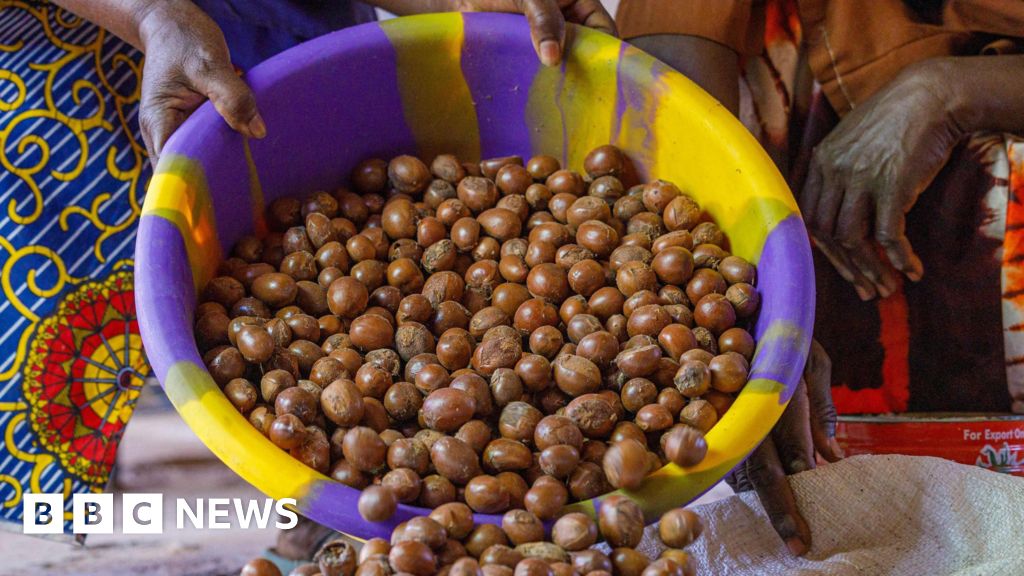Nigeria has announced a six-month ban on the export of raw shea nuts from which many beauty creams are made.
The move is aimed at making the trade more lucrative as Nigeria is losing out by not producing much shea butter locally.
The country produces nearly 40% of the world’s annual crop, but it only accounts for 1% of the $6.5bn (£4.8bn) global market - a situation Vice-President Kashim Shettima described as 'unacceptable'.
Harvested fruit from shea nut trees have to be crushed, roasted, and boiled to extract their oil to produce the shea butter used in cosmetics.
The butter is also used in the food industry in the production of some sweets like chocolate and ice creams - and in pharmaceuticals too.
Shea trees grow in the wild from West to East Africa - a vast strip known as the 'shea belt'. Small-scale farmers, often women, also plant and harvest them in these areas.
Shettima said the temporary ban would enable Nigeria to move from being an exporter of the raw nuts to a global supplier of refined shea products.
'It is about industrialization, rural transformation, gender empowerment, and expanding Nigeria’s global trade footprint,' the vice-president said during the announcement in Abuja.
The short-term aim, he said, was to see Nigeria's earnings from the fruit of the shea nuts grow from $65m to $300m annually.
Nigeria Agriculture Minister Abubakar Kyari has noted that nearly 25% of the shea crop disappears through unregulated informal trade.
Experts suggest that the ban could lift local farmers out of poverty by ensuring fairer compensation for their harvests.





















